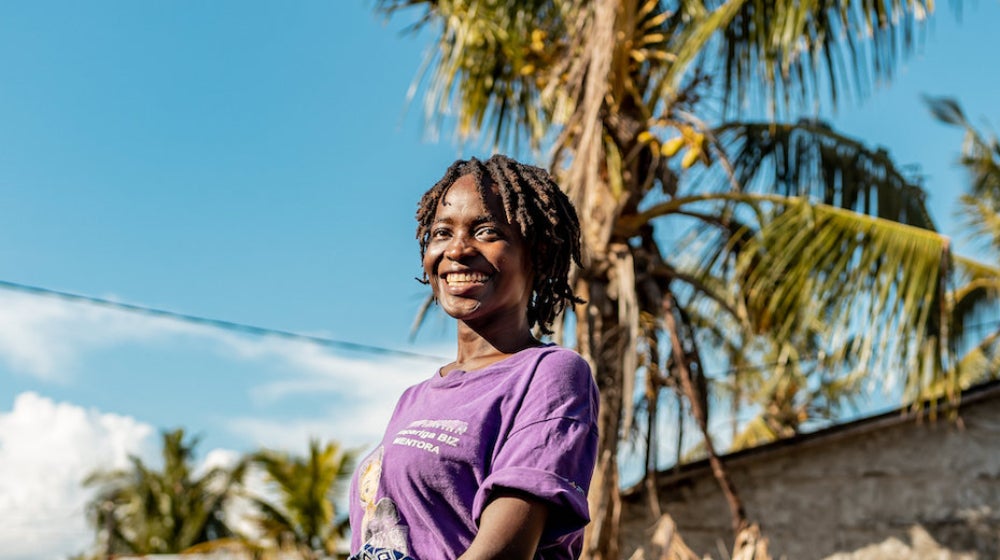Disability inclusion at UNFPA: We matter. We belong. We decide.
At UNFPA, we are committed to advancing the sexual and reproductive health and rights of persons with disabilities, particularly women and young people, who are often left behind in development and humanitarian efforts.
The Programme of Action of the landmark International Conference on Population and Development affirms the rights of persons with disabilities to reproductive health.
UNFPA places the dignity, rights and agency of persons with disabilities at the centre of its work. Through our Disability Inclusion Strategy 2022–2025, we are taking concrete steps to ensure that our work is inclusive, human rights-based and aligned with the principles of the Convention on the Rights of Persons with Disabilities, the Sustainable Development Goals and the UN Disability Inclusion Strategy.
We recognize that persons with disabilities face multiple and intersecting forms of discrimination that limit their access to sexual and reproductive health and rights, protection from violence and participation in decision making. Our approach, grounded in human rights, is guided by the principle of “Nothing about us without us.”
Mainstreaming disability inclusion across all we do
Disability inclusion is not a standalone issue. It is a cross-cutting priority that informs our programming, policies, partnerships and internal operations. We are working to:
- Strengthen the meaningful participation of persons with disabilities, especially women and young people, in policy development and in programme design, implementation and monitoring.
- Ensure accessible and inclusive sexual and reproductive health services, information and education, particularly in humanitarian settings.
- Support data collection and evidence generation to make persons with disabilities visible in population censuses, demographic health surveys and other statistics.
- Build capacity across UNFPA offices and with partners to implement disability-inclusive approaches, through training and technical assistance.
Turning strategy into action
Our strategy is brought to life through innovative programmes and partnerships at the country, regional and global levels. The We Decide Programme, UNFPA’s flagship programme on disability inclusion, supports efforts to empower women and young persons with disabilities and to ensure their access to comprehensive sexual and reproductive health and rights and a life free from violence.
Collaboration and coordination are at the heart of disability inclusion at UNFPA. We collaborate with organizations of persons with disabilities to create solutions that reflect their priorities and lived realities. We also actively participate in the Global Action on Disability Network and in UN interagency coordination mechanisms, as well as implement joint programmes through funding instruments such as the Global Disability Fund.
Making disability inclusion a reality is exemplified by these achievements:
- With strong advocacy by UNFPA to include questions on disability in census data collection, the proportion of censuses globally that include such questions increased to 73 per cent in 2020 from 33 per cent in 2018.
- More than 70 countries have benefitted from our We Decide Guidelines on disability inclusive sexual and reproductive health and rights, which has enabled the planning and implementation of initiatives that include women and youth with disabilities in the provision of access to services and information.
- In 12 countries in East and Southern Africa, 160 educators have received training on comprehensive sexuality education for young people with disabilities, enabling educators to reach youth in and out of school.
- Fifty six national organizations of persons with disabilities provided training in sexual and reproductive health and rights advocacy across Latin America and the Caribbean. One hundred sixty women with disabilities across 19 countries participated. The courses focused on issues including empowerment and rights.
- With catalytic funding from We Decide, UNFPA country offices in Burkina Faso, Ecuador, El Salvador, Morocco, Mozambique, North Macedonia and Serbia strengthened their capacity for disability inclusion, enabling them to develop targeted actions and to integrate disability considerations across all initiatives. These efforts have attracted additional funding from other donors, allowing these countries to launch joint initiatives and to sustain progress.
Looking ahead
UNFPA’s disability inclusion efforts are evolving, and we are committed to continual learning and adaptation. As we implement our strategy through 2025 and beyond, we aim to lead by example, demonstrating that truly inclusive programming is not only possible, but essential to achieving our common goals.
UNFPA calls on donors to match this momentum with sustained and flexible funding to transform commitments into lasting, transformational change for persons with disabilities.
For more information, contact us at [email protected] and visit the We Decide page.
Updated 17 June 2025












